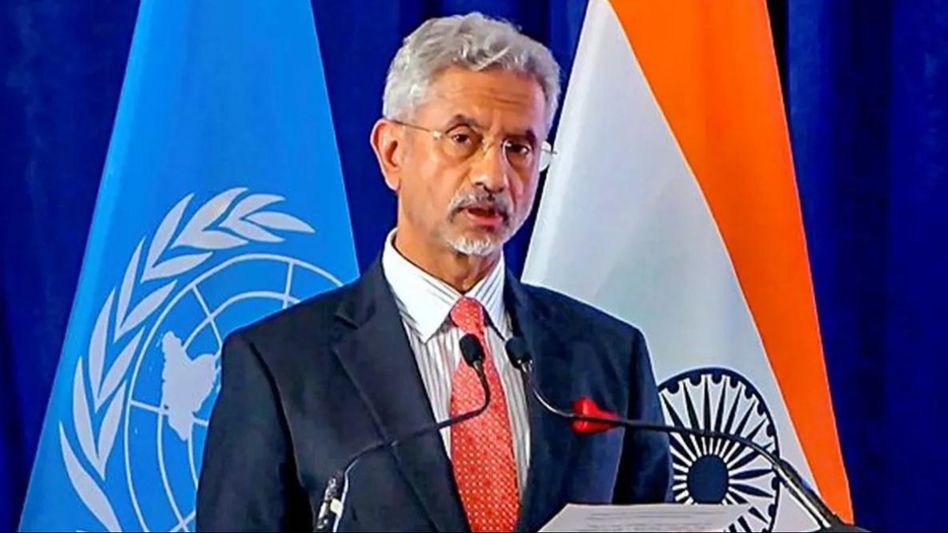External Affairs Minister Jaishankar terms Manipur situation as ‘tragic’, says entire India wants to see normalcy
External Affairs Minister S Jaishankar on Tuesday said what happened in Manipur is “truly tragic” while underlining that the entire people of India wish to see normalcy return to the northeastern state.

External Affairs Minister S Jaishankar on Tuesday said what happened in Manipur is “truly tragic” while underlining that the entire people of India wish to see normalcy return to the northeastern state.
Jaishankar was addressing the Indian community here this evening as part of the first leg of his four-day visit to South Korea and Japan.
Among the multiple questions about India and the issues related to the Indian diaspora, one of the community members asked him about the situation in Manipur.
“In terms of how did this happen? How did the government let this happen? You know there cannot be anybody who would not regret what is happening there. I mean, what's happened there is truly tragic and it is tragic because of the close intermingling of communities, which leads to this degree of violence, which becomes very difficult to head off,” the minister said.
“I think, the entire wishes of the country are very much with Manipur, I mean, people would like to see normalcy returns, they would like to see law and order get back,” Jaishankar said, adding, “This is not the India, and certainly not the northeast, which anybody is hoping for.”
Manipur has witnessed escalating violence between Meiteis and the Kuki communities since May 3, 2023 with 219 casualties reported after a 'Tribal Solidarity March' in the hill districts protested the Meitei community's demand for Scheduled Tribe (ST) status.
Also Read: Manipur: Imagi Meira warns 50 MLAs of responsibility for future incidents
The Meiteis, constituting around 53 per cent of Manipur's population, reside predominantly in the Imphal Valley. The tribals, including Nagas and Kukis, who comprise 40 per cent, primarily inhabit the hill districts.
Answering the question, Jaishankar said, “This (the situation in Manipur) is something which we take very much to heart” and mentioned how the open border with Myanmar was one of the issues and how India suspended the earlier unique system where people could travel up to 16 km either way without travel documents.
“We have unfortunately decided now to suspend that and, actually, in a way, harden the border situation. It is unfortunate,” he added.
Before specifically answering the question about Manipur, Jaishankar recounted how the current dispensation at the Centre changed the mere talk about Look East and Act East into practice and implemented a number of projects there.
“If you look at how difficult it was to travel, if you see the sort of level of business, the attention given, the resources given, it was actually very disturbing. And that has been one of the changes of the last 10 years,” he asserted.
“There is obviously everybody today is ... distressed is a very mild word ... for what is happening in Manipur. So, I do feel in many respects, northeast itself can act as a bridge, but it has both a cultural side to it and a physical contiguity side too,” he said.
Jaishankar then mentioned the developmental works in the region carried out over the last decade and how India-Bangladesh are now witnessing “railways, roadway, trains, waterways” connectivity; goods are going to Bangladesh port, electricity is being supplied etc. “So, it has given that whole area, I would say, a kind of a boost.”
Jaishankar then added that India is trying if similarly, connectivity with Bhutan can be enhanced.
He also mentioned India's decision last week to three projects for semiconductor manufacturing, of which one is going to be in Assam. “To me, to see a major production, that too high technology production project, coming up in the Northeast ... it is a big statement,” Jaishankar added.
Earlier in the day, after reaching Seoul, the External Affairs Minister called on South Korean Prime Minister Han Duck-soo among other things. He will be co-chairing the 10th India-South Korea Joint Commission Meeting (JCM) with his counterpart Cho Tae-yul on Wednesday.
Copyright©2025 Living Media India Limited. For reprint rights: Syndications Today









